Fakarava in the Tuamotus is a natural paradise that all diving enthusiasts must visit. However, discovering the ocean floor is not the only activity available on the atoll. If it doesn’t rain, non-divers can even have a great vacation there! What are the best things to do in Fakarava? Here are five suggestions for a successful stay.
1. Dives at Garuae Pass
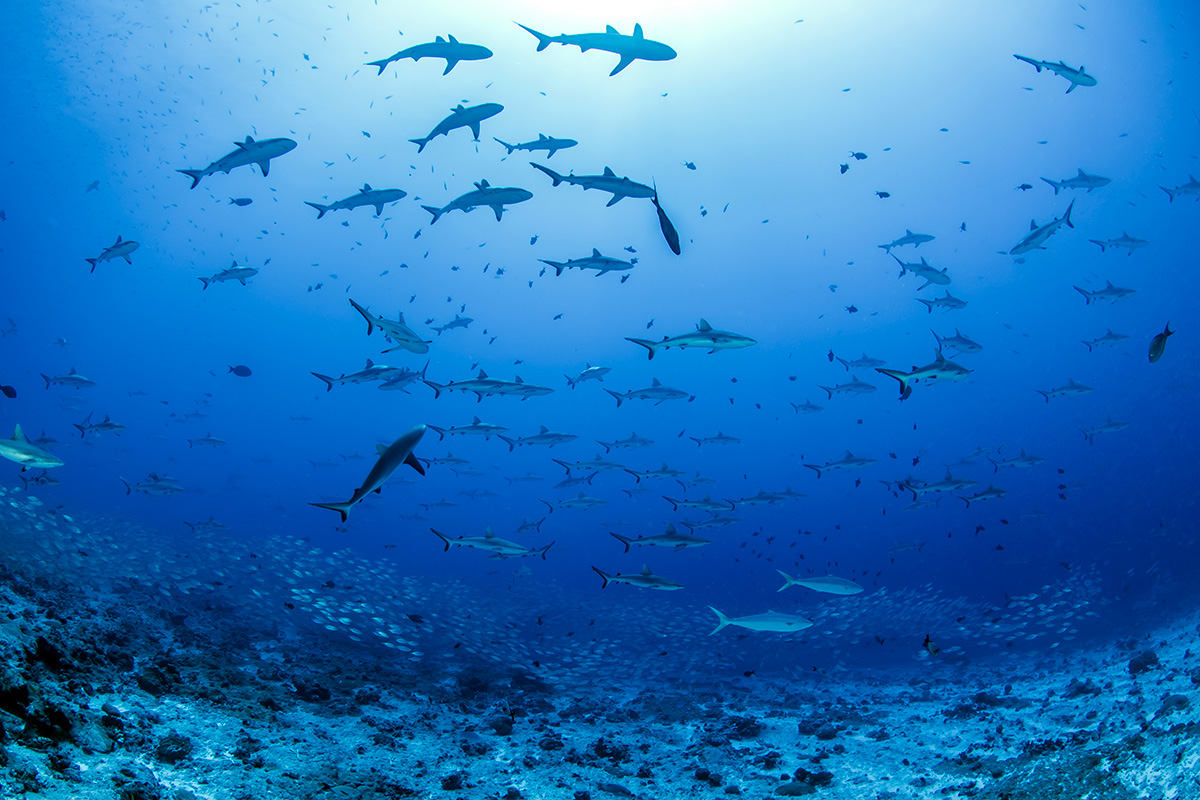
Reserved for advanced divers, the Garuae pass in the north of the atoll is an extraordinary and demanding spot. The currents can be very violent and the diving impresses even the most experienced divers. It is through this pass that, at high tide, the whole Pacific Ocean enters the lagoon. You will meet a generous and imposing aquatic fauna: rays, tropical fish and of course sharks.
The dive by incoming current starts on the drop off. You will fly over an incredible relief made of canyons and underwater valleys. This wonderful experience is to be repeated three, four, five times and more! Each dive brings its own surprises and discoveries. This is the best thing to do in Fakarava during your stay.
2. Night Dive at Tumakohua Pass
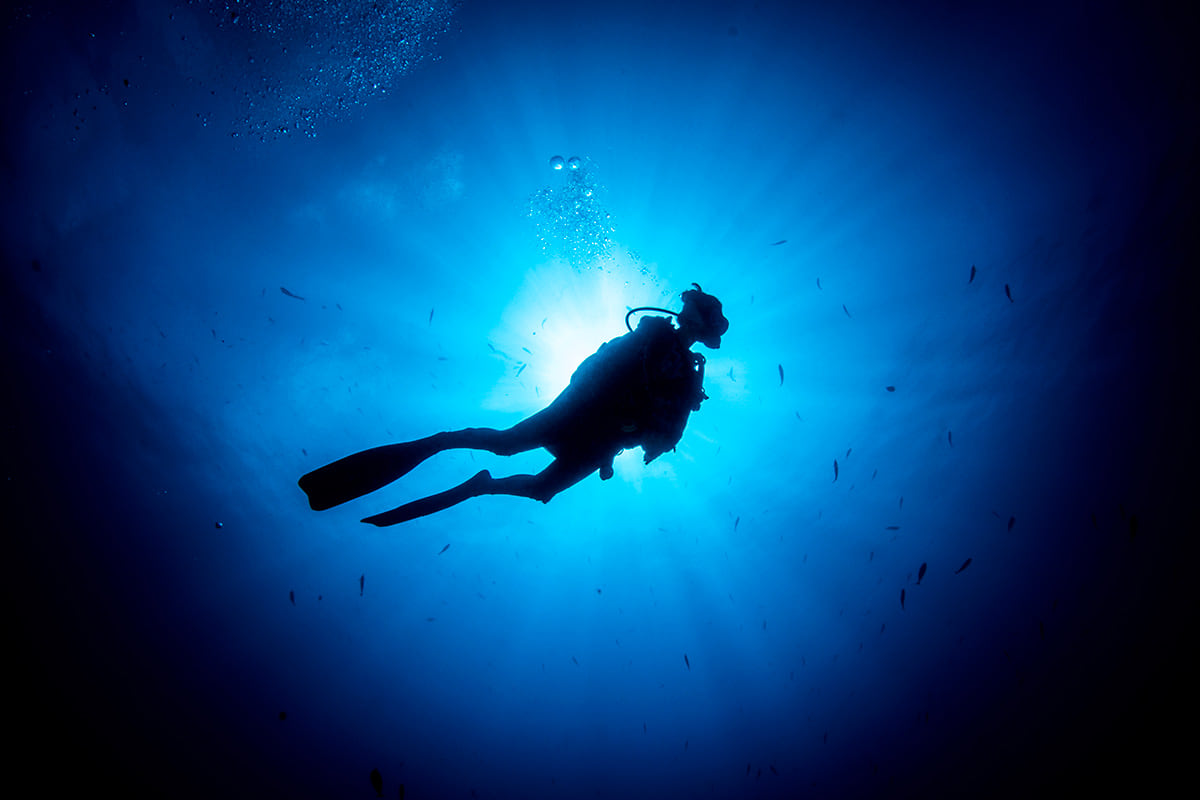
Diving in Fakarava impresses and amazes. Let’s add some adrenaline to it with a night dive. Let’s go to the south of the atoll on Tetamanu for a sensational and emotional dive. At sunset, the aquatic world shifts and predators start hunting.
At Tumakohua pass, the wall of sharks is in effervescence. Several hundreds of grey sharks are chasing their prey and passing right by your wetsuit. It is important not to lose your cool! This amazing experience is to be enjoyed with the staff of Tetamanu Village, the only dive club on the motu offering this trip.
3. Excursion to Tetamanu
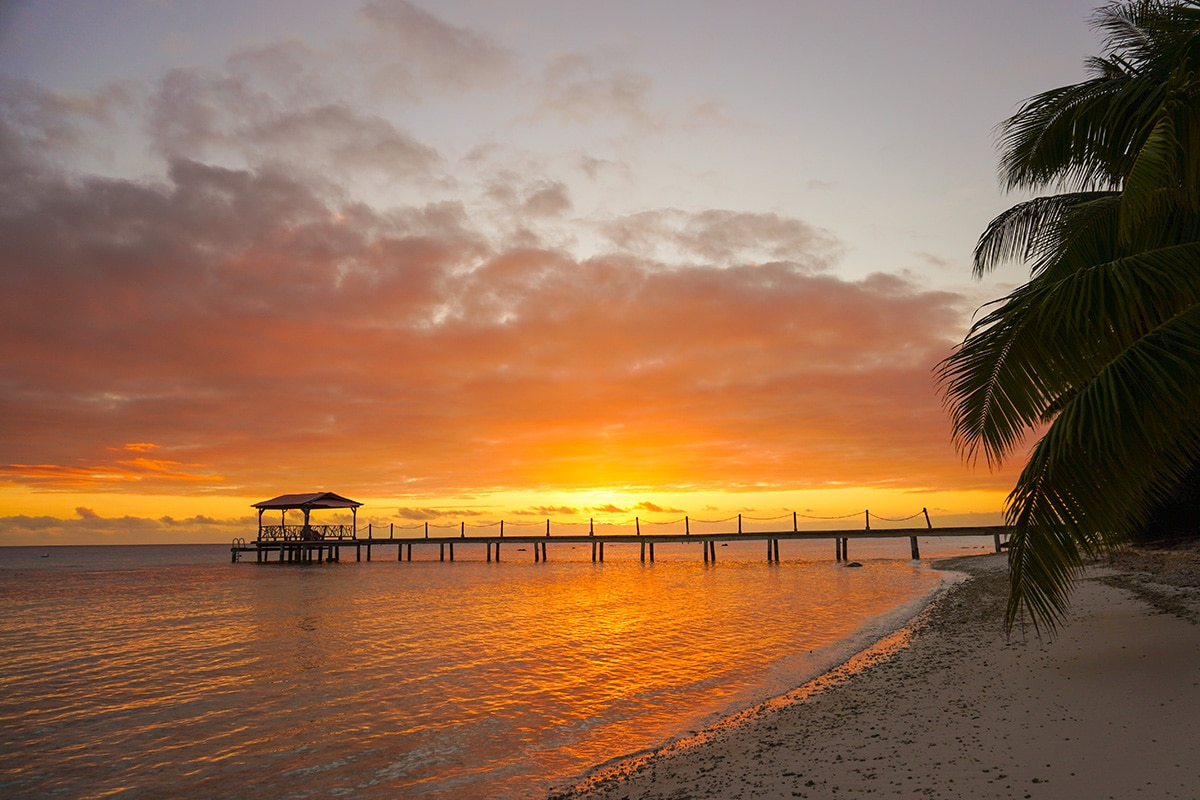
Although Fakarava is a famous diving destination, several excursions on the lagoon deserve your attention. For example, you can visit the blue lagoon and the motu Tehatea to observe seabirds and do snorkeling. But by far the most beautiful excursion is the one to Tetamanu, in the south of the atoll.
Departing from Rotoava, this day trip takes you to the discovery of natural wonders: the motus with pink sand. East of Tumakohua Pass, these islets are ideal for swimming and snorkeling. The visit continues with the exploration of the old village of Tetamanu with its cemetery, its abandoned buildings and especially a magnificent renovated church. This one with its infinite blue ceiling is sure to impress you.
4. Free Time on the Lagoon
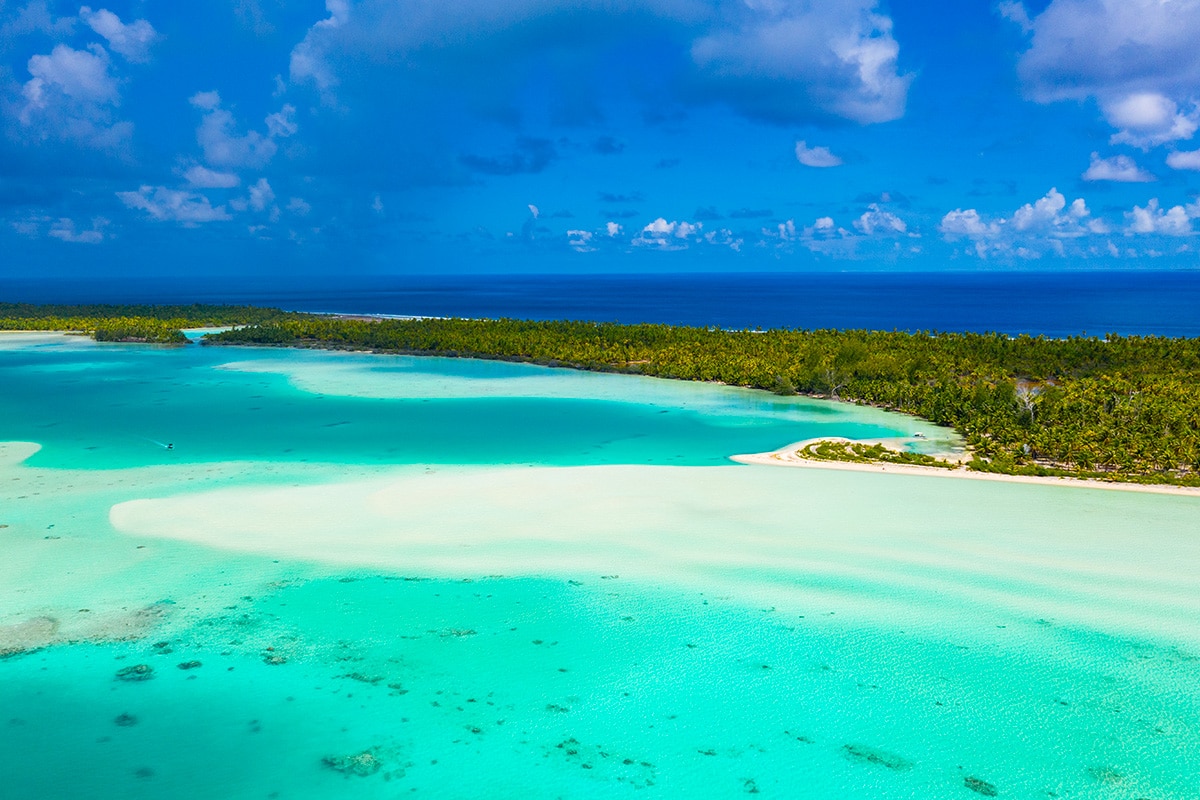
The lagoon of Fakarava is full of natural treasures. Snorkeling is ideal to observe the coral gardens and meet the aquatic fauna. Often, a few meters from the shore is enough to swim with the numerous black tip sharks. Don’t worry: they are harmless and you can admire them at any time. However, for your own safety, do not go snorkeling near the passes without a professional.
These adventures on the lagoon are made possible thanks to the kayaks that most of the pensions in Fakarava put at the disposal of their customers. You can enjoy the dreamy landscapes along the shoreline! And at sunset, you can watch the lagoon blaze while sitting comfortably on a white sand beach.
5. Discover Rotoava
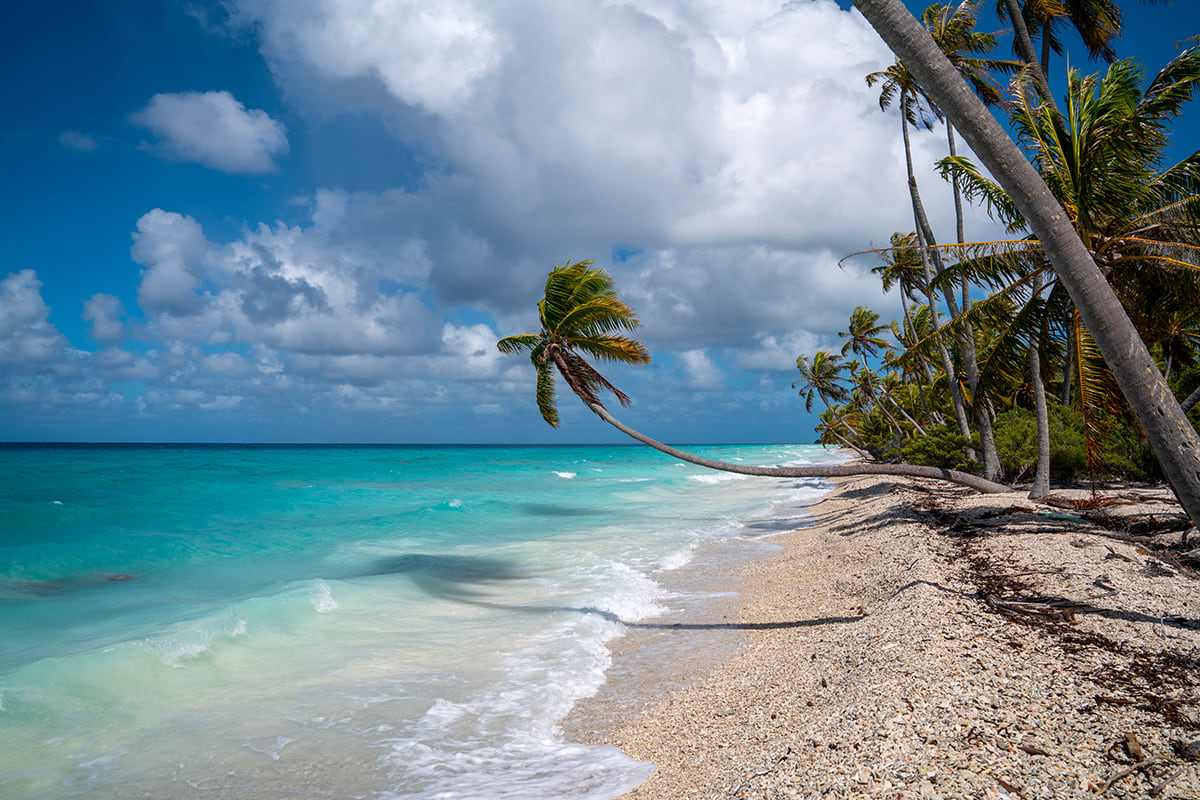
If kayaks are available, some North Fakarava guesthouses also lend bikes. This is a great opportunity to explore the long deserted beaches of Rotoava. Why not have a quick picnic at the foot of the famous coconut tree lying on the water? It’s time for contemplation, photos and adventure!
On the way, you will pass by several curiosities, such as the old lighthouse with Mayan architecture or the pearl farm. A short stop in one of the village stores will allow you to stock up on food and drinks. Unless you prefer to have a snack of one of the Polynesian culinary specialities? Finally, this trip gives you the opportunity to meet the inhabitants of Fakarava and observe the way of life of the southern islands.
See You on Fakarava!
Because of its remoteness, getting to Fakarava may seem complicated. Fortunately, ecotourism has greatly contributed to the development of the atoll and its opening to the world. Of course, diving is the main attraction, but Fakarava offers everyone a privileged contact with nature. Do not wait any longer and contact us to prepare your next stay in French Polynesia.

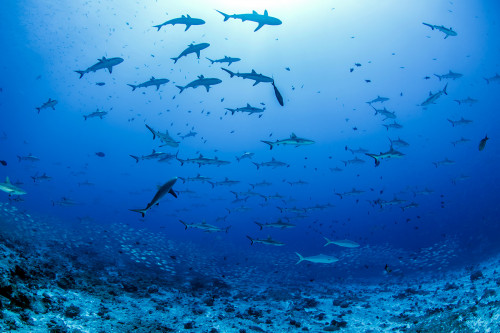
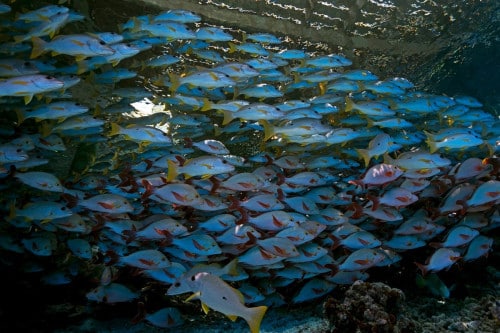
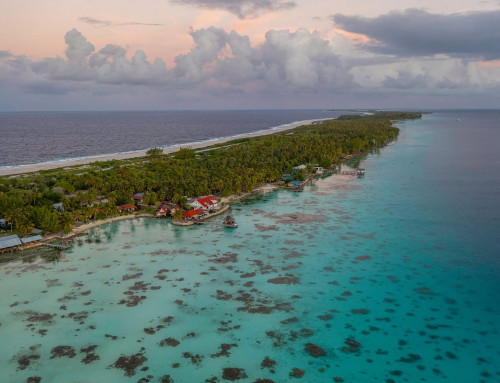
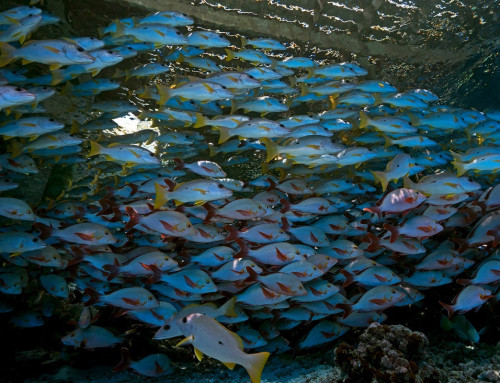
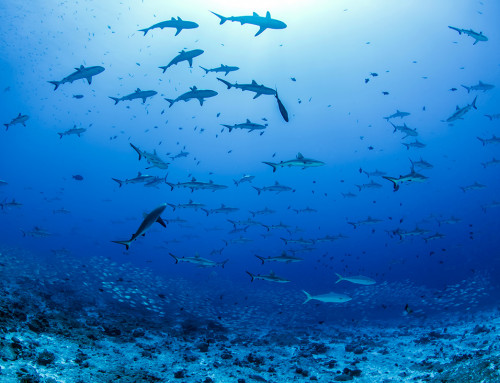

Leave A Comment